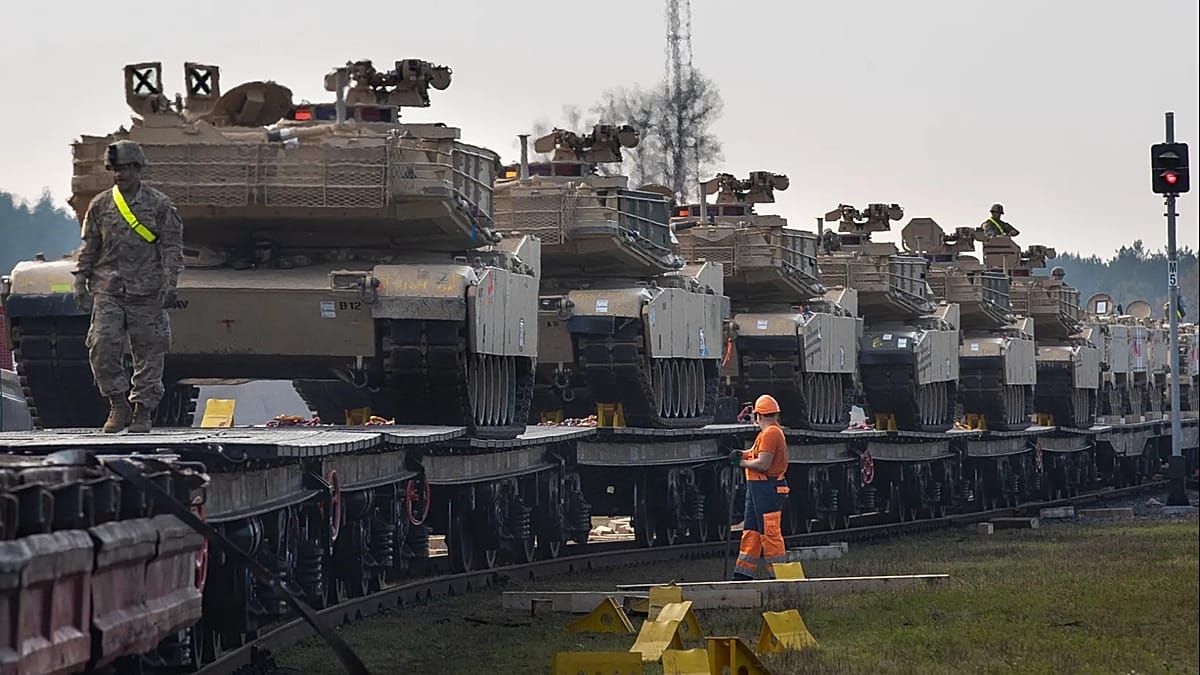Published on
EU member states will have just three days in peacetime and six hours in emergencies to allow other European military troops and equipment to cross their borders under a new “military Schengen” proposal from the European Commission designed to significantly improve military mobility across the bloc.
“Today, in order to move military equipment and troops from, let’s say west to east, unfortunately it takes months,” said Apostolos Tzitzikostas, European Commissioner for Sustainable Transport and Tourism. “What we want to do is to make it happen within days.”
“You cannot defend a continent if you cannot move across it,” he told a briefing attended by Euronews and other outlets. “It’s very clear. So we’re creating this military Schengen.”
The so-called Military Mobility package will be officially presented later on Wednesday. It is the latest in a series of plans released by the European Commission since the beginning of the year to substantially bolster the EU’s defence before the end of the decade – by which time, some intelligence agencies believe, Russia could have the means to attack another European country.
One of the key measures will be the fast-tracking of permitting for cross-border military mobility. Currently, the rules across the 27 member states are not harmonised, with some taking weeks to reply to a request from another EU country to move troops and/or equipment on their soil.
The Commission wants this to be reduced to a maximum of three days in peacetime and to just six hours in times of emergencies with the presumption being that it will be granted in the latter case.
‘Short-term, quick win investments’
The plan envisages a new European military mobility enhanced response system modelled on the EU’s Civil Protection Mechanism, which enables member states to quickly secure assistance when reeling from natural or man-made disasters.
This will include a “military mobility solidarity pool” where member states will be able to free up assets – such as flat trains, ferries or strategic airlifts – for others to use, as well as a “military mobility catalogue” that will list dual-use transport and logistic assets from civilian companies that can be used for military operations.
All this work will be coordinated by a new military mobility transport group comprised of a national coordinator for each member state. They will also prioritise financing for a select number of 500 infrastructure projects that have been identified as necessary to improve four agreed military corridors whose locations are still under wraps.
The aim is to upgrade roads, railway lines, ports, airports, tunnels and bridges so they can bear the weight and size of military equipment.
“Solid logistic networks make the difference between winning and losing wars,” Tzitzikostas said, adding that “the focus is on short-term, quick win investments to quickly increase capacity.”
The price tag
Tzitzikostas estimates that €100 billion will be needed to do this work, but the EU has so far earmarked a mere €1.7 billion for military mobility in the current multiannual budget that ends in 2027, an amount the commissioner described as “a drop in the ocean”.
The proposal on the table for the next seven-year budget that will start in 2028 is for just under €18 billion – a tenfold increase, but still far off the mark.
However, Tzitzikostas said that it is not the only pool of money available for member states.
Given that infrastructure is dual-use, member states should be able to tap into cohesion funds, allocated under the bloc’s main investment policy that aims to reduce inequalities between regions, as well as money from the SAFE defence loan scheme.
EU member states, most of which are also in NATO, will also be able to count these investments towards their alliance’s new bumper spending target.
Still, Tzitzikostas said, “it’s not only money. This package is also about the framework”.
“The geopolitical situation now in the world is not easy so we have to learn to move faster, we have to learn to work harder and we have to learn to bring the results much earlier than what one would expect,” he said.

